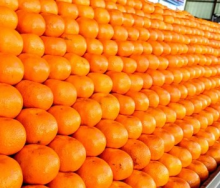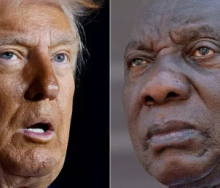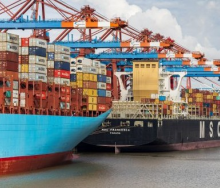The government of Xi Jinping has announced the imposition of steep anti-dumping tariffs on imports of polyformaldehyde copolymers – an engineering plastic used widely in the automotive, electronics and consumer goods industries.
The United States, European Union, Japan and Taiwan will now have to pay steep duties and the US, unsurprisingly, is the worst targeted exporter, facing penalties of 74.9%.
The decision follows the conclusion of an anti-dumping investigation conducted by China’s Ministry of Commerce, which determined that foreign producers were selling the material at unfairly low prices, causing material injury to the domestic industry.
The newly imposed tariffs, effective immediately, vary significantly by region and by company.
Alongside the US, goods from the EU are subject to tariffs of approximately 34.5%, while Japanese imports will incur duties of about 35.5%.
However, selected Japanese firms such as Asahi Kasei Corp have been granted reduced rates, with tariffs as low as 24.5%.
Taiwanese exporters are likewise affected, facing average tariffs of 32.6%, though major producers like Formosa Plastics and Polyplastics Taiwan will be taxed at markedly lower rates of 4% and 3.8%, respectively.
The move signals a more assertive posture from Beijing amid ongoing global scrutiny of trade practices and supply chain dependencies. Analysts view the tariffs as part of China’s broader strategy to shield key domestic industries from foreign competition while reinforcing self-sufficiency in high-tech and advanced materials sectors.
“These tariffs could significantly reshape supply chains, especially for downstream industries in China that rely on imported engineering plastics,” said Dr Lin Mei, a trade analyst at the Shanghai Institute for Global Commerce.
“It also raises the possibility of retaliatory tariffs from the affected economies, which could trigger a wider trade dispute.”
The US and EU have yet to formally respond, though trade officials in Brussels and Washington are reportedly reviewing the measures closely. Japan's Ministry of Economy, Trade and Industry has expressed "strong regret" over the decision, stating that it would seek clarification through diplomatic channels.
Manufacturers in China who depend on polyformaldehyde copolymers are bracing for potential supply disruptions and increased costs. The material is favoured for its high strength, stiffness, and chemical resistance, making it a critical input in the production of gears, bearings, and various automotive components.
"Price hikes are inevitable," said Li Yancheng, procurement director at a major automotive parts supplier based in Guangzhou.
"We will either have to absorb the costs or pass them on to consumers, neither of which is ideal."
The tariffs are also expected to influence global pricing and trade flows, with some experts predicting a shift towards increased intra-Asia trade or the development of alternative sources, including domestic Chinese production and imports from unaffected nations.
The announcement comes at a time of heightened economic nationalism and growing friction between major trading blocs. It also follows recent moves by the US and EU to impose or propose stricter tariffs on Chinese-made electric vehicles, solar panels, and other technology-intensive exports, raising concerns of a tit-for-tat trade environment.
As the global economy grapples with the aftershocks of pandemic-related supply disruptions and shifting geopolitical alliances, China’s latest trade measure underscores the fragility of international cooperation in key industrial sectors.
With trade officials on all sides likely to monitor the impact of these tariffs closely, the coming months may prove pivotal in determining whether the current measures lead to meaningful dialogue or a deepening of trade hostilities.













